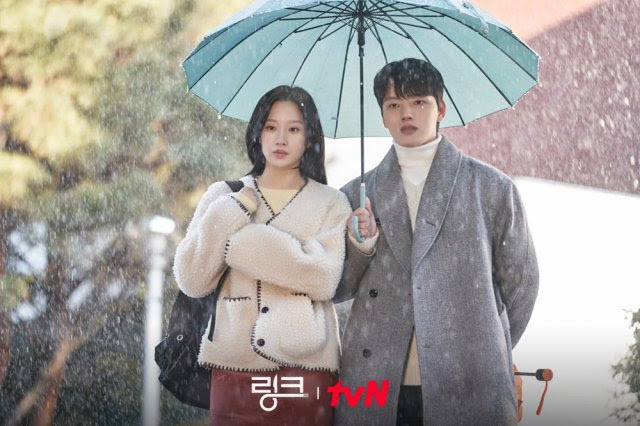Eat, Love, Kill’s attempt to weave together a rom-com and a thriller does not work on paper, but it works brilliantly on film.
Despite the show’s sometimes long-winded road to get there, the plot is sold by the chemistry between its two stars.
In the K-drama Adamas, Ji Sung plays a pair of identical twins, one of whom is a best-selling author and the other a cocky prosecutor.
Korean dramas and films are well-known for their ability to seamlessly blend disparate components, which works incredibly effectively when they appear out of place. These stories have taken significant risks, carried us to new places, and made South Korea’s stories some of their best.
This type of show can be found on Eat, Love, Kill. It does not work on paper, but when we see it on screen, we’re won over by its appeal – and maybe even a little magic.
In this sweet love story, a charming chef wins a girl’s heart by cooking for her, and a unique connection between the two individuals allows them to experience each other’s feelings even when they are miles apart.
It’s also the story of a psychotic stalker, an attempted murder, the tragic death of a brother-in-law, and the hunt for a serial killer who preys on children. A veritable feast of mismatched feelings.
Because viewers can be sensitive to images of terror and on-screen violence, this show’s darker components constitute a significant danger. The drama has everything it needs to entice Korean romcom fans.
The gloomy narrative undercurrents and occasional animosity provide a pleasing contrast to the colourful scenes of neighbourhood romantic comedy, which are filled with tasty dishes served by Eun Gye-hoon. Overall, the mixture works out rather nicely (Yeo Jin-goo).
The show’s fantasy gimmick seals the deal. Because Gye-hoon and No Da-Hyun had a magical emotional connection when they were kidnapped as children, the link binds them together. Despite never being fully explained.
It gives a new method for unpleasant moments in bubbly midday situations. It is a guiding light that permits two souls to come to each other’s aid in the night.
When it comes to saving Da-Hyun, Gye-hoon is always the one who rushes to her aid when she’s in need. Compared to other Korean rom-coms with an aloof male and an adventurous lady, Link: Eat, Love, Kill does an excellent job portraying both genders.
In Korean thrillers, kidnapped children and abusive partners are pretty standard, but the thriller components are all geared to reinforce notions of female unity.
This starts early on when Da-creepy Hyun’s coworker, Lee Jin-Geun (played by Shin Jae-hwi), becomes obsessed with her and begins to harass and threaten her. Even when Da-Hyun and her family believe he has been eliminated from the equation, he repeatedly reappears with a dogged determination.
Later, when Lee Eun-Jung (Lee Bom) enters the picture, intent on getting retribution, we worry about what would happen to Da-Hyun. The show leads us to believe that she is Jin-Geun’s sister; however, Da-Hyun and we eventually learn that one of his victims was Eun-Jung’s sister. After that, Da-Hyun and Eun-jung developed a close friendship.
Both Da-mother, Hyun’s Hong Bok-hee (played by Kim Ji-young), and grandmother, Na Chun-ok (played by Ye Soo-Jung), provided much-needed comedic relief throughout the entirety of the show. However, they now walk around their neighbourhood giving menacing glares, brandishing shovels, and baseball bats solely because they have shared several traumatic experiences in the past.
Several years ago, to safeguard Da-Hyun, Bok-hee and Chun-ok were responsible for unintentionally killing a dangerous animal. Even earlier than that, as we learn after the series, Chun-ok sheltered Bok-hee from the abuse that her husband inflicted on her. Chun-son ok’s married to Bok-hee, but Chun-ok preferred Bok-hee above her son and has remained by her side ever since. The husband was Chun-own ok’s son.
Even though Gye-hoon spent most of the episode acting as Da-savior, Hyun’s he is not allowed to take on the role of hero in conclusion. When he finally comes to terms with the fact that he could not protect his sister Gye-young (Ahn Se-bin), who was murdered, he reaches the emotional pinnacle of his quest. It is to everyone’s relief that the show does not miraculously figure out a way for her to reemerge in the present.
The location of Gye-last young’s resting place is discovered 18 years after the first incident when the perpetrator of the crime is apprehended. In the hometown of the murderer, there is a clearing in the middle of a forest where the earth is dug up for days on end until Gye-hoon is finally called in.
A grisly but comfortingly familiar sight for thriller lovers, he strolls into the forest murder scene and is reunited with the charred remains of his sister. “I’m sorry for being so late,” he sobs, his face drenched in tears.
After a long and winding journey, the show finally reached its exhilarating and emotional conclusion. It’s hard to say that Link: Eat, Love, Kill was as suspenseful as Beyond Evil (also starring Yeo) because its plot twists were broad and sluggish, giving us plenty of time to anticipate what was going to happen, often many episodes in advance.
The show’s chemistry between Yeo and Moon, who have proven to be one of the most natural on-screen pairings of the summer, held it all together, even though it was only occasionally compelling as a thriller.



Comment here